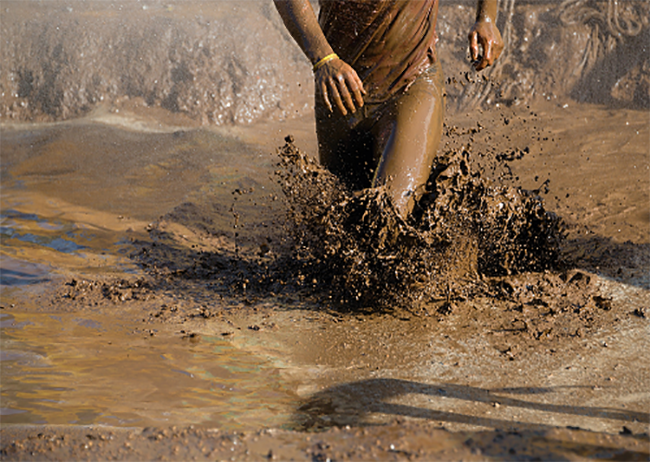Blog

New Jersey Continues to Muddy the Waters on Legal Malpractice in Criminal Defense Cases
/ 03.Jun, 2014The Pennsylvania Supreme Court in Bailey v. Tucker, 533 Pa. 237, 621 A.2d 108 (1993). set the standard for professional liability claims against lawyers sued by their clients arising out of criminal defense representation. In Pennsylvania, a former client can maintain a cause of action against his former criminal defense lawyer only if he establishes:
(1) the employment of the attorney;
(2) reckless or wanton disregard of the defendant’s interest on the part of the attorney;
(3) the attorney’s culpable conduct was the proximate cause of an injury suffered by the defendant/plaintiff, i.e., “but for” the attorney’s conduct, the defendant/plaintiff would have obtained an acquittal or a complete dismissal of the charges;
(4) as a result of the injury, the criminal defendant/plaintiff suffered damages;
(5) moreover, a plaintiff will not prevail in an action in criminal malpractice unless and until he has pursued post-trial remedies and obtained relief which was dependent upon attorney error.
Bailey, at 251, 621 A.2d at 115.
The law in New Jersey has been unclear as to whether there is an exoneration requirement in New Jersey for a legal malpractice claim based on an underlying criminal action, and what the extent of that requirement is. At least one District Court, applying New Jersey law, held that to succeed in a legal malpractice action against an attorney based on representation by the attorney in an underlying criminal action the plaintiff must establish the representation by the attorney was ineffective. See, Alevras v. Tacopina, 399 F. Supp. 2d 567, 571 (D.N.J. 2005)(applying New Jersey law). The court found a defendant who claims that his attorney’s performance was ineffective must demonstrate:
First . . . that counsel’s performance was deficient. This requires showing that counsel made errors so serious that counsel was not functioning as the ‘counsel’ guaranteed the defendant by the Sixth Amendment. Second, the defendant must show that the deficient performance prejudiced the defense. This requires a showing that counsel’s errors were so serious as to deprive the defendant of a fair trial, a trial whose result is reliable.
Alevras, 399 F. Supp. 2d at 571 (D.N.J. 2005) quoting Strickland v. Washington, 466 U.S. 668, 687, 104 S. Ct. 2052, 80 L. Ed. 2d 674 (1984). The New Jersey Supreme Court in McKnight v. Office of the Pub. Defender, 197 N.J. 180 (2008), reversed the Superior Court’s opinion in McKnight v. Office of the Pub. Defender, 397 N.J. Super. 265, 297 (App. Div. 2007). In reversing, the Supreme Court stated it did so “substantially for the reasons given by Judge Stern in his dissenting opinion. Judge Stern wrote, inter alia, “[S]ome exoneration should be required, and … proof of innocence, or at least some exoneration, is required before recovery can be obtained against a public defender[.]” In the unpublished opinion Lanzilotti v. Greenberg, N.J. Super. App. Div. A-1608-10T2 (2011), the court found inter alia:
The judge also correctly granted summary judgment because exoneration is a predicate for a legal-malpractice claim arising from a criminal prosecution. In a legal-malpractice action against a criminal defense attorney, the cause of action does not accrue until the client is in some way exonerated. McKnight, supra, 197 N.J.at 182.7 Exoneration includes dismissal of a charge “or any disposition more beneficial to the criminal defendant than the original judgment.” Ibid. (citation and internal quotation marks omitted). Any cause of action Lanzilotti may have had against Greenberg evaporated when Lanzilotti exhausted his federal appeals without any form of exoneration. He, thus, has no colorable legal-malpractice claim against Greenberg.
On May 21, 2014, the Appellate Division of the New Jersey Superior Court, Appellate Division, issue a presidential opinion in Cortez v. Gindhart. The Court found where a client asserted his attorney did not engage in plea bargaining, despite a request by the client to do so, there would be a colorable claim for legal malpractice even without an exoneration. The Court stated:
An attorney’s negligence in the discharge of duties for a client who pleads guilty may result in actual injury to a client even if guilty. For example, if an attorney fails to communicate a plea offer prior to a plea cut-off date, the client who proceeds to trial and receives a sentence harsher than the offer has suffered an injury, i.e., a result measurably worse than the sentence that would have been imposed in the absence of attorney negligence. Under such circumstances, the client’s malpractice claim does not depend upon the invalidity of the conviction or the repudiation of a knowing and voluntary guilty plea. (internal cites deleted)
It is worth noting, the Court did find the plaintiff in Cortez failed to show any actual damages relating to the alleged malpractice, and affirmed the grant of summary judgment. For now, the issue of an exoneration requirement for criminal legal malpractice cases in New Jersey is unsettled.


Comments